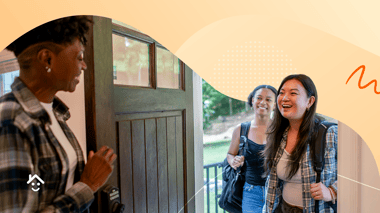Part of the university experience is living with other students who don’t study the same course you do. You might be studying medicine, forced to be on campus all day, while your flatmate who studies English (like I did) only goes in two days a week. According to a 2024 study by HEPI, subjects allied to Medicine have the most contact hours of all university courses. But what subjects have the least?
Top five degrees with the least amount of contact hours per week:
- Historical, Philosophical and Religious Studies – 9.2 hours
- Language and Area Studies – 10.0 hours
- Geographical and Environmental Studies – 10.3 hours
- Psychology – 10.7 hours
- Law – 11.0 hours
Of course, it’s important to remember that contact hours don’t translate to the maximum number of hours you’re required to work. All these courses require independent study outside of scheduled classes. When considering the contact hours in tandem with independent study and work required outside of the course, the list changes slightly.
Top five degrees with the lowest total workload hours per week:
- Psychology –26.3 hours
- 10.7 contact hours
- 12.4 independent study
- 3.2 work outside of course
- Geographical and Environmental Studies – 26.9 hours
- 10.3 contact hours
- 13.9 independent study
- 2.7 work outside of course
- Language and Area Studies – 28.2 hours
- 10.0 contact hours
- 15.3 independent study
- 2.9 work outside of course
- Social Sciences – 28.8 hours
- 11.5 contact hours
- 13.9 independent study
- 3.4 work outside of course
- Historical, Philosophical and Religious Studies – 29 hours
- 9.2 contact hours
- 17.0 independent study
- 2.8 work outside of course
While Psychology ranks fourth in contact hours, it appears to be the degree with the least weekly workload. Similarly, while Historical, Philosophical and Religious Studies has the least contact hours at 9.2, it’s beefy requirement of 17 hours of independent study pushes it down to fifth place.
The reality is that no matter what course you choose to study, you’ll have to put the work in. If you’re currently contemplating what to study at university, here’s some unasked-for advice from a recent graduate: Choose a subject you’ll enjoy. If you are passionate about what you are studying, not only will you have a better experience at university, but you will be more likely to do well and succeed on your course – leading to better opportunities upon graduation.
Happy studying!
You can search for the perfect room to study in on Accommodation for Students today.




